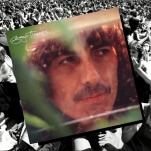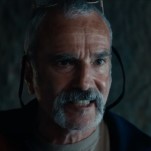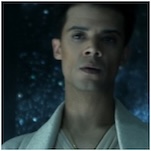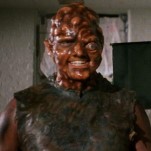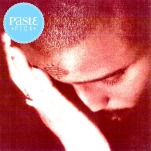Psychopaths
(2017 Tribeca Film Festival Review)
Photo: Tribeca Film Festival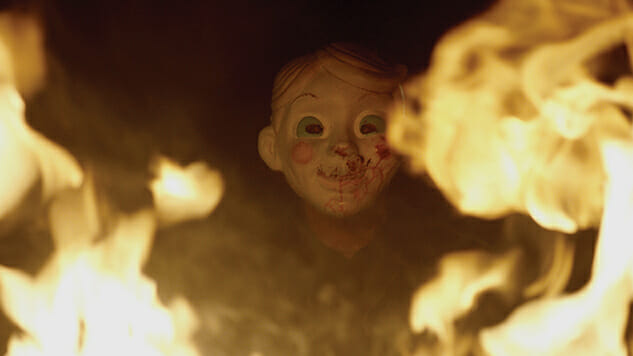
Do you think props departments on horror movies design creepy masks for themselves? Or do people travel, browsing antique stores and vintage shops, until they find one suitable enough around which a movie can be crafted? These are the kinds of questions Psychopaths will have you asking once your eyes and mind grow weary of its meaningless psychedelic freakouts. The film—directed and written by Mickey Keating, regent of horror references—cobbles its many genre touchstones into a winding walkway to absolutely nowhere.
Psychopaths’ fading, pseudo-surreal imagery (which warrants its own mention in the credits) is the highlight of the film’s loosely-related scenes of murder and torture. After a serial killer’s execution, his evil spreads and awakens in a night of chaos inflicted upon an unsuspecting town. A mustachioed strangler (James Landry Hébert), a sadistic surgeon (Angela Trimbur) and an asylum escapee (Ashley Bell) wreak havoc in their own ways as we cut back and forth between them, trying to find some ecstasy in their passionate cruelty. The only thing separating this from an anthology is a single voiceover (Jeff Daniel Phillips) rich with cowboy-pretension. This voice, however, seems to come from so many sources that the final product is a cacophony rather than a choir. Add in some overtly stylistic moves (like right-angled camera tilts and split-screen) care of the overeager Keating, and the film’s substance never professes dominance over its style.
Unfortunately, that style never quite feels like it’s pushing the buttons it’d like to, grabbing bits and pieces from Eli Roth, David Lynch and countless others without really finding a distinctive form that can stand on its own merits—or even qualify as Keating’s own. Despite a few trippy visuals, all the spooky absurdity connecting these loose vignettes never finds a symbolic (or otherwise) through line, and the vignettes aren’t written with enough thematic weight (beyond the obvious: humanity’s propensity for violence) to feel like more than an especially gory and inventive music video, only without any music to add subtextual heft. We don’t see the transition from peacetime in this community to the growing cruelty of unfettered primal instinct run wild, like in something as simply sketched as The Purge series, where we see straight-laced suburbia turn hellish. Psychopaths simply starts at one volume and never wavers.
It’s a breeze to watch (until the needles near the fingernails) but it’s all (ironically) so pointless that boredom begins to seep in. Does any of it matter? Quentin Tarantino steals from his childhood obsessions and remixes them inside of strangely modern characters. Keating tries the same, but his obsessions are both new and old and he strings them together like a clip show, splicing style and gore without any of the understated depth that makes Tarantino’s new-old worlds so tolerable and explorable. Tarantino may not give us time to breathe, but he gives his characters the room to do so (and even he messes that up sometimes).
-

-

-

-

-

-

-

-

-

-

-

-

-

-

-

-

-

-

-

-

-

-

-

-

-

-

-

-

-

-

-

-

-

-

-

-

-

-

-

-

